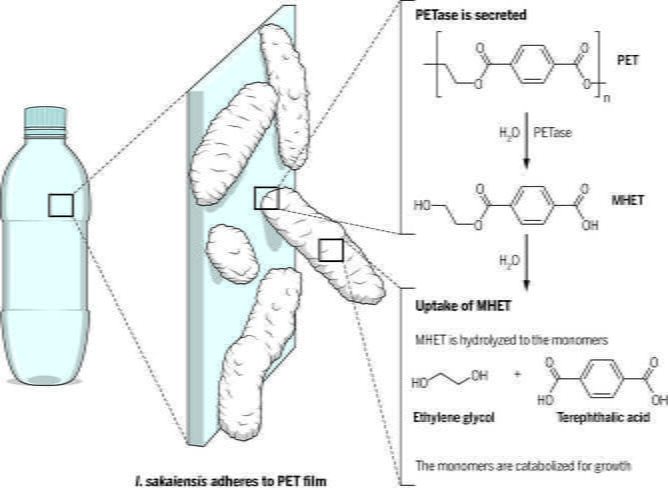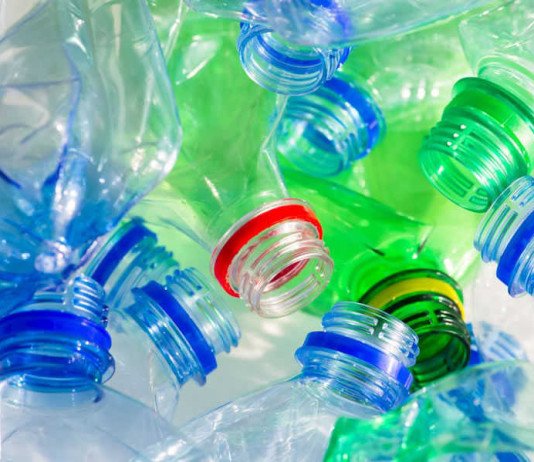One of the major problem that our planet facing today is plastic pollution. We know plastics are non-biodegradable materials, and according to reports we manufacture over 300 million tonnes of plastics each year for use in everything from packaging to clothing. But after use when we discarded these plastics, they will become a real threat to our environment. But now scientists found a new plastic-eating bacteria to minimize this problem.
Also Read : NASA Shares Image of the First Flower Bloomed in the Zero Gravity of Space
Discovered Plastic-Eating Bacteria
A group of scientists from at Kyoto University, Japan discovered a species of plastic-eating bacteria which is capable to breaks down fully one of the most common kinds of plastic called Polyethylene terephthalate (PET), the type often used to package bottled drinks.
Earlier a group of Yale researchers has led to the discovery of a rare fungus that can break down plastic. And now its found that any microbes that can eat it.
To find the plastic-eating bacteria research team collected 250 PET-contaminated samples including sediment, soil and wastewater from a plastic bottle recycling site.
Next they screened the microbes living on the samples to see whether any of them were eating the PET and using it to grow. They originally found a consortium of bugs that appeared to break down a PET film, but they eventually discovered that just one of bacteria species was responsible for the PET degradation. They named it Ideonella sakainesis.
Also Read : The best Linux distro for beginners

Further tests in the lab revealed that it used two enzymes to break down the PET. After adhering to the PET surface, the bacteria secretes one enzyme onto the PET to generate an intermediate chemical. That chemical is then taken up by the cell, where another enzyme breaks it down even further, providing the bacteria with carbon and energy to grow.
The researchers report that a community of Ideonella sakaiensis working this way could break down a thin film of PET over the course of six weeks if the temperature were held at a steady 86 degrees Fahrenheit.
This opens a whole new approach to plastic recycling and decontamination. At present, most plastic bottles are not truly recycled. Instead they are melted and reformed into other hard plastic products.
The PET-digesting enzymes offer a way to truly recycle plastic. They could be added to vats of waste, breaking all the bottles or other plastic items down into into easy-to-handle chemicals. These could then be used to make fresh plastics, producing a true recycling system.
Also Read : Scientists Built Biological Supercomputer for Much Faster Problem Solving Using Very Little Energy
